Did you know that a humble wildflower once saved entire armies in ancient times? Yarrow, a plant that often grows unnoticed along roadsides and meadows, has been used for over 3,000 years as a natural ally in health and healing. Ancient Greek warriors, including Achilles, reportedly carried yarrow to the battlefield to stop bleeding wounds—a fact that earned it the nickname “herb of the soldier.” Today, modern herbalists and natural health enthusiasts are rediscovering this unpretentious wonder of nature for its wide range of supportive benefits.
In a world where synthetic medications often dominate, yarrow quietly offers a reminder of the wisdom hidden in simple plants. From soothing digestion to easing stress and supporting skin health, yarrow proves that powerful remedies do not always come from expensive bottles or fancy packaging. This article takes you on a journey into the hidden power of yarrow, exploring its history, traditional uses, and practical ways to bring this modest plant into your daily life. By the end, you may look at this overlooked wildflower with newfound respect.
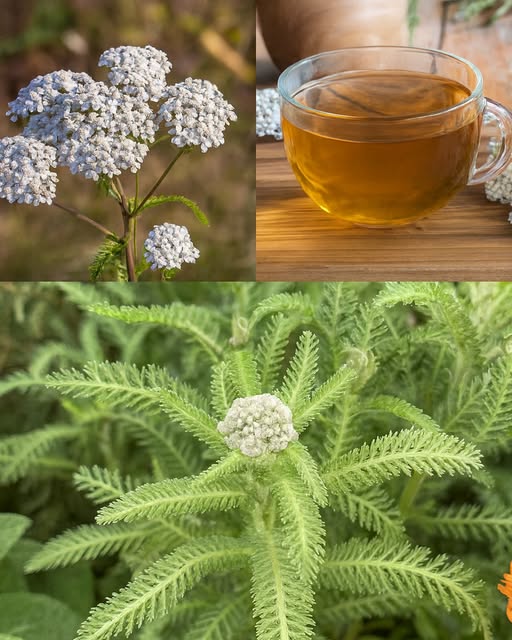
Yarrow Through the Ages: A Timeless Healer
Yarrow, scientifically known as Achillea millefolium, is a perennial herb that thrives in temperate regions around the world. Its delicate white or pink flower clusters conceal a remarkable resilience.
- Ancient Greece: Yarrow was carried by warriors to treat wounds, hence its association with Achilles.
- Native American traditions: Many tribes used yarrow tea to ease fevers and colds.
- European folk medicine: Yarrow was brewed to aid digestion, regulate menstruation, and soothe minor aches.
The thread connecting these traditions is clear: across cultures and centuries, yarrow has been valued for its versatility and accessibility.
The Science Behind Yarrow’s Benefits
Modern research has started to validate what tradition has long taught. Yarrow contains flavonoids, tannins, and volatile oils that give it antibacterial, anti-inflammatory, and antioxidant properties. These compounds explain its ability to support the immune system, ease inflammation, and encourage healthy circulation.
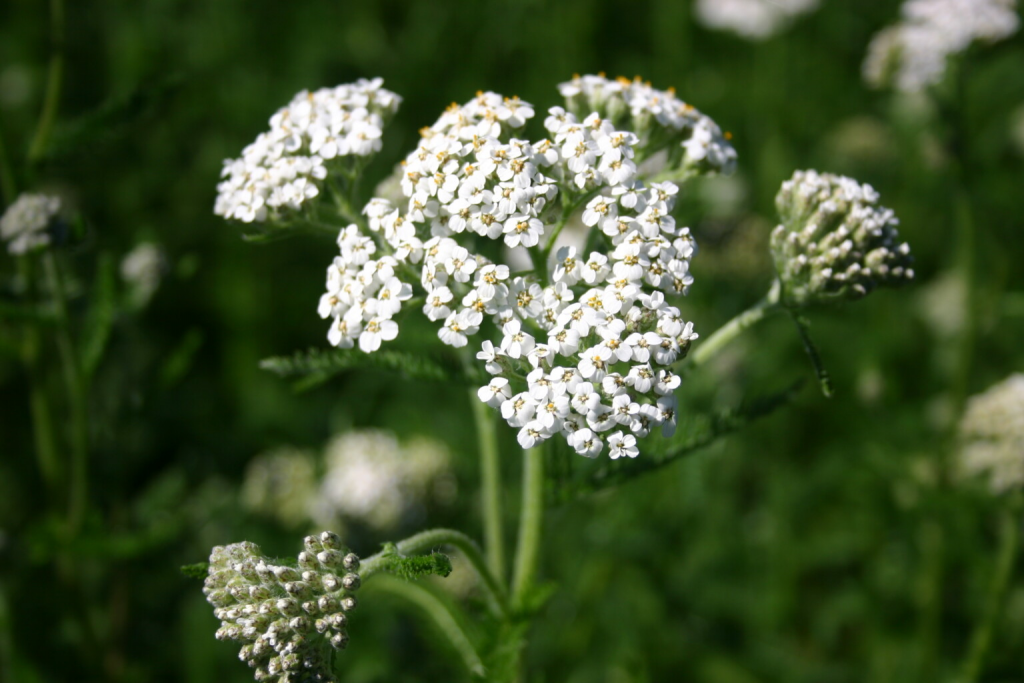
Key bioactive components of yarrow include:
- Flavonoids: Natural plant compounds that promote relaxation and stress reduction.
- Tannins: Astringent agents that help tighten tissues and reduce bleeding.
- Volatile oils: Known for antimicrobial activity, supporting skin and wound health.
- Alkaloids: Compounds believed to contribute to pain relief and circulation.
Everyday Uses of Yarrow
Yarrow may not look like much, but its applications in daily life are both practical and powerful.
1. Digestive Support
Yarrow tea has long been used to soothe indigestion, bloating, and cramps. Its bitter compounds encourage healthy bile flow, which aids digestion.
2. Women’s Wellness
Traditionally, yarrow has been used to help regulate menstrual cycles and ease cramps. Some herbalists recommend it for supporting balance during menopause.
3. Skin and Wound Care
Applied topically, yarrow’s natural astringency can help stop minor bleeding, promote healing, and reduce skin irritation. In fact, dried yarrow powder was once sprinkled directly on cuts.
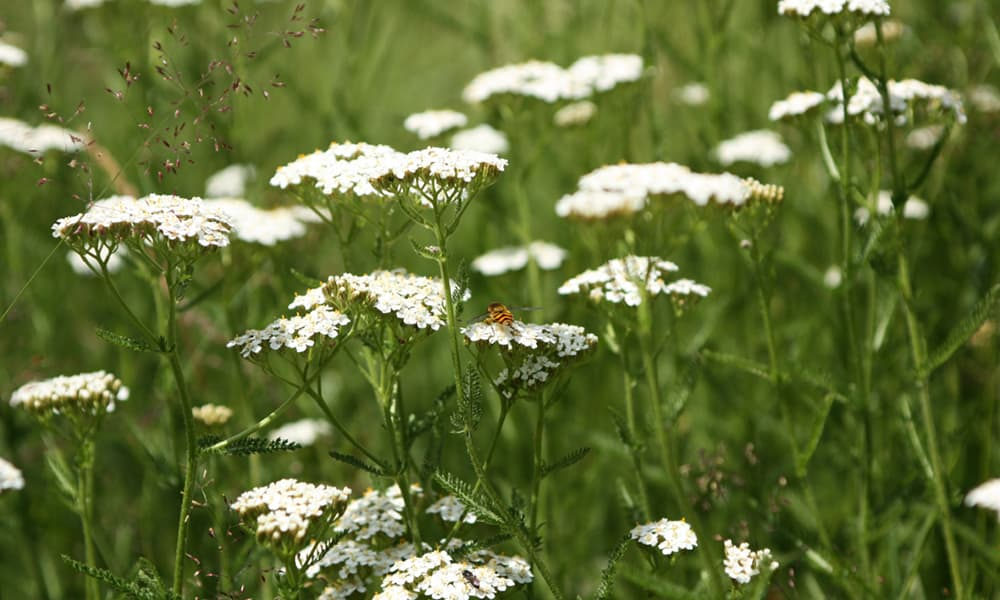
4. Relaxation and Stress Relief
Drinking yarrow tea before bed may promote relaxation thanks to its flavonoids. While mild, it can support the nervous system much like chamomile.
5. Immune Support
With its antimicrobial and anti-inflammatory properties, yarrow is often included in herbal blends for colds and fevers.
How to Use Yarrow Safely
Forms of yarrow available:
- Tea: Made from dried flowers and leaves, steeped for 5–10 minutes.
- Tincture: A concentrated liquid extract for more potent use.
- Poultice or salve: Crushed fresh leaves or infused oils applied to the skin.
- Capsules: Dried and powdered yarrow in supplement form.
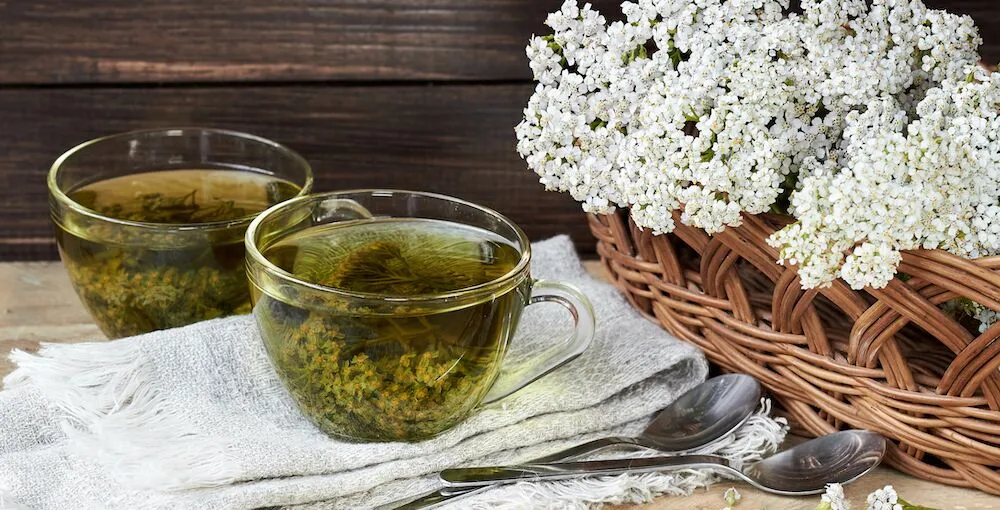
Dosage suggestions:
- Tea: 1 cup, up to 3 times daily.
- Tincture: Typically 1–2 dropperfuls, but always follow product guidance.
Safety notes:
- Pregnant women should avoid yarrow as it may stimulate uterine contractions.
- People allergic to plants in the daisy family (ragweed, chamomile) should use caution.
- Always consult a healthcare provider before mixing yarrow with medications, especially blood thinners.
Yarrow in Modern Life: Practical Tips
Incorporating yarrow doesn’t require complicated rituals. Here are simple ways to make it part of your wellness routine:
- Brew yarrow tea with chamomile and mint for a soothing digestive blend.
- Keep dried yarrow in your natural first aid kit for minor cuts or scrapes.
- Add a few drops of yarrow tincture to warm water at the first sign of a cold.
- Create a homemade skincare spray by infusing yarrow in witch hazel.
Many people find that using yarrow is less about chasing dramatic results and more about enjoying steady, gentle support from nature.
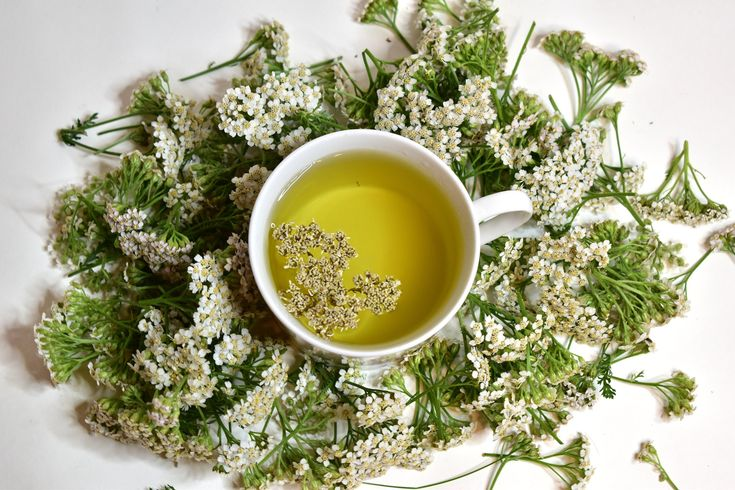
Quick Reference Table
| Use Case | How to Apply | Key Benefit |
|---|---|---|
| Digestive Aid | Tea before meals | Eases bloating, cramps |
| Skin Care | Poultice or salve | Stops bleeding, soothes irritation |
| Women’s Health | Tea or tincture | Supports cycles, eases cramps |
| Stress Relief | Tea before bed | Promotes relaxation |
| Immune Support | Tea or tincture blend | Helps fight colds and fevers |
Conclusion
Yarrow is a gentle but mighty reminder that nature often provides simple solutions to everyday concerns. From ancient warriors on the battlefield to modern wellness enthusiasts, its reputation as a supportive herb has stood the test of time. With applications ranging from digestion to skin care and immune support, this unpretentious wildflower continues to prove its worth.
Frequently Asked Questions (FAQ)
Can I grow yarrow at home?
Yes, yarrow is hardy and grows easily in gardens, often with little care.
Is yarrow safe for children?
In small amounts, yarrow tea may be used for older children, but always consult a pediatrician.
Can I use yarrow daily?
Many do, but moderation is key. Rotate with other herbs for balance.
Disclaimer: This article is for informational purposes only and does not replace professional medical advice, diagnosis, or treatment. Always consult with a qualified healthcare provider before making changes to your health regimen.




